This final posting of items the Smithsonian gem and mineral collection features phosphates, molybdates, and silicates in the collection.
Click the pictures below for a larger version pop-up.
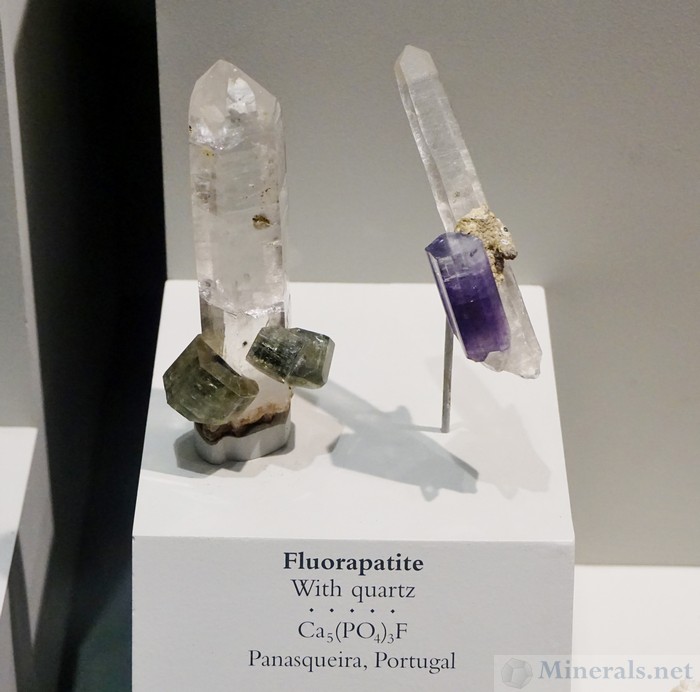
Two
Fluorapatite Crystals with
Quartz from Panasqueira, Portugal
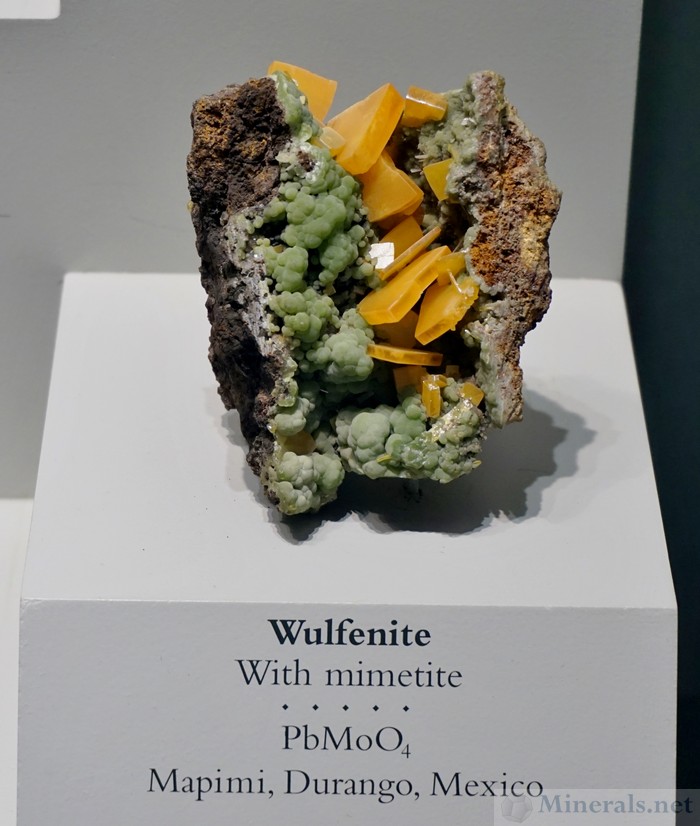 Wulfenite
Wulfenite with
Mimetite from Mapimi, Durango, Mexico
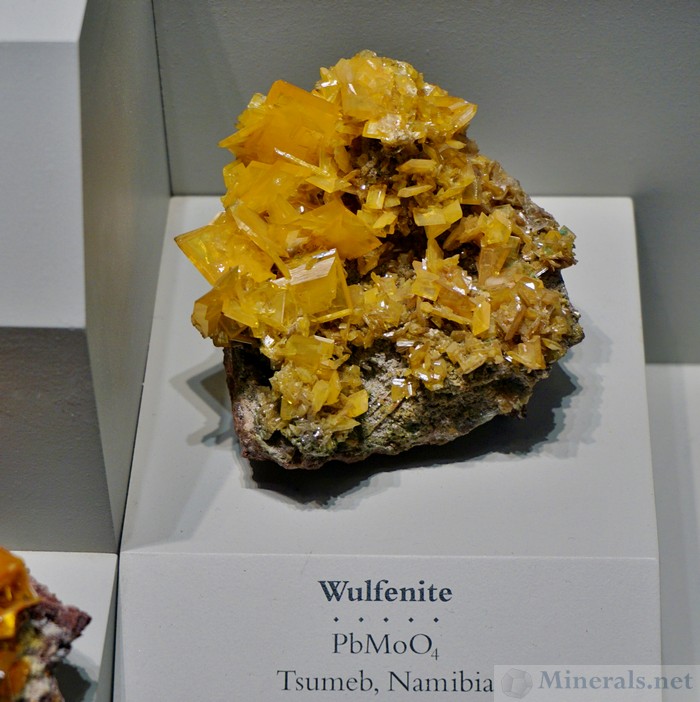
Sparkling
Wulfenite Crystal Cluster from Tsumeb, Namibia
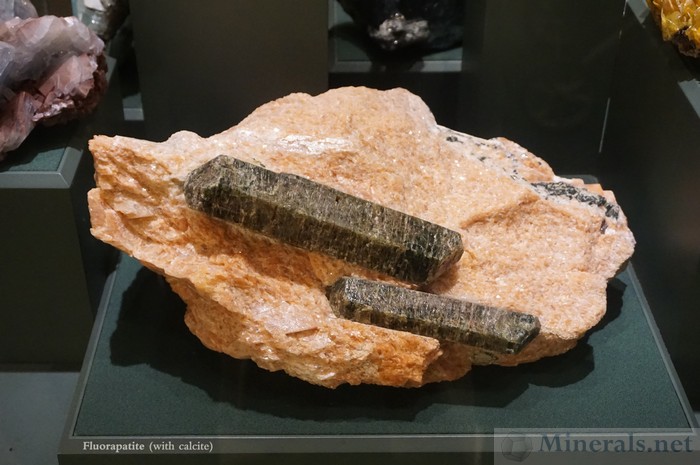
Giant
Apatite Crystals with
Calcite from Otter Lake, Quebec, Canada
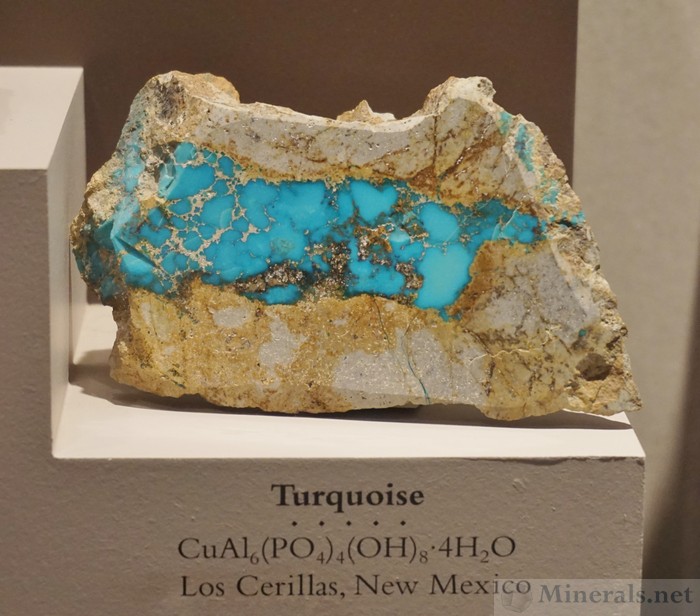 Turquoise
Turquoise Vein from Los Cerillos, New Mexico
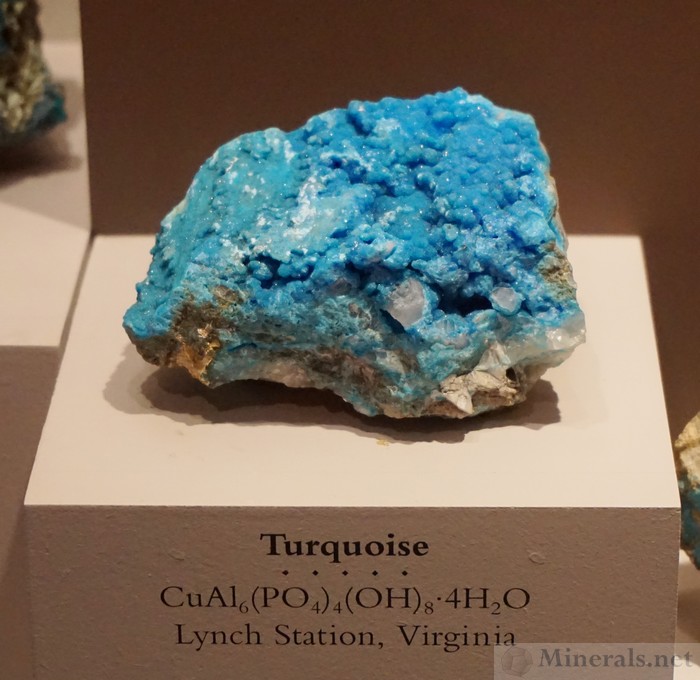
Crystallized
Turquoise from Lynch Station, Virginia
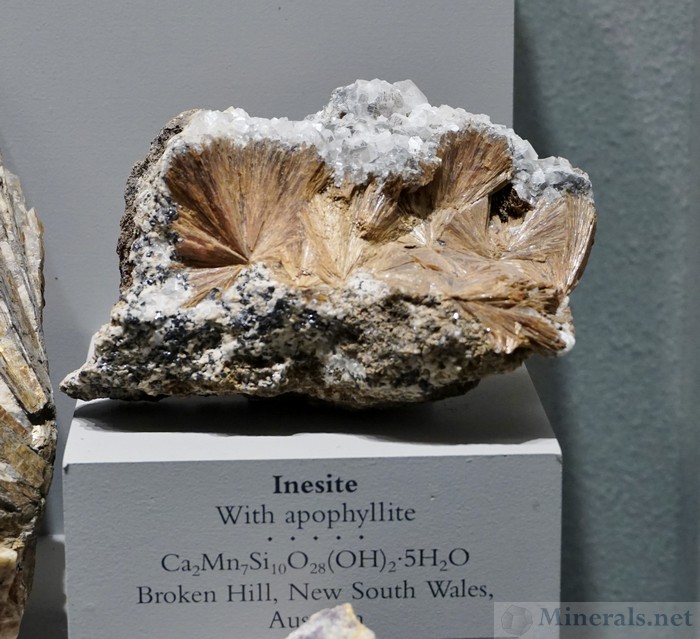 Inesite
Inesite with
Apophyllite from Broken Hill, NSW, Australia
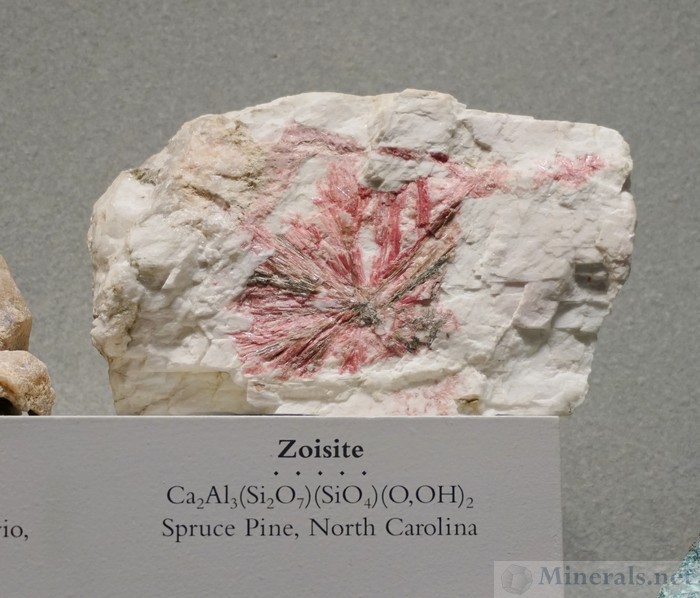
Pink
Zoisite Spray from Spruce Pine, North Carolina
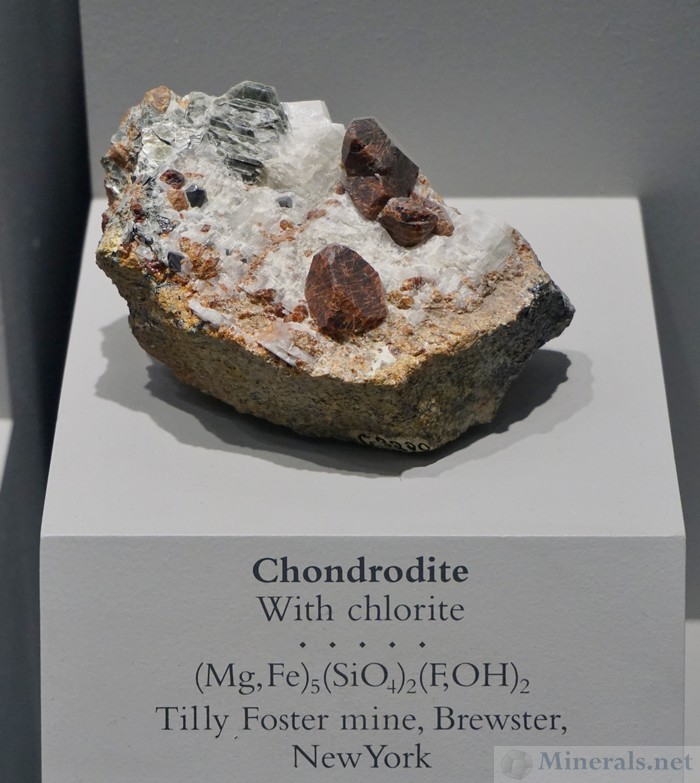 Chondrodite
Chondrodite with
Chlorite from the Tilly Foster Mine, Brewster, New York
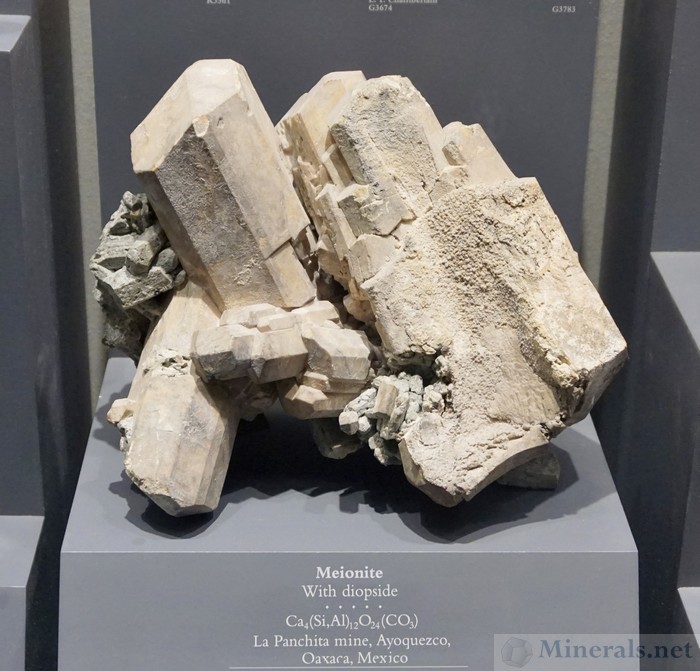 Meionite
Meionite with
Diopside from La Pachita Mine, Ayoquezezco, Oxaca, Mexico
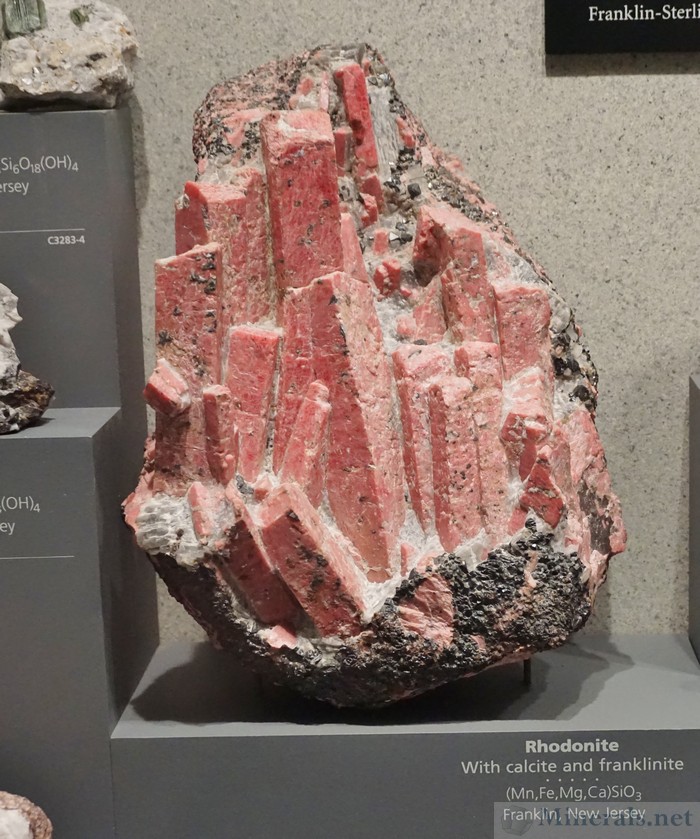 Rhodonite
Rhodonite with
Calcite and
Franklinite from Franklin, New Jersey
Click the pictures below for a larger version pop-up.
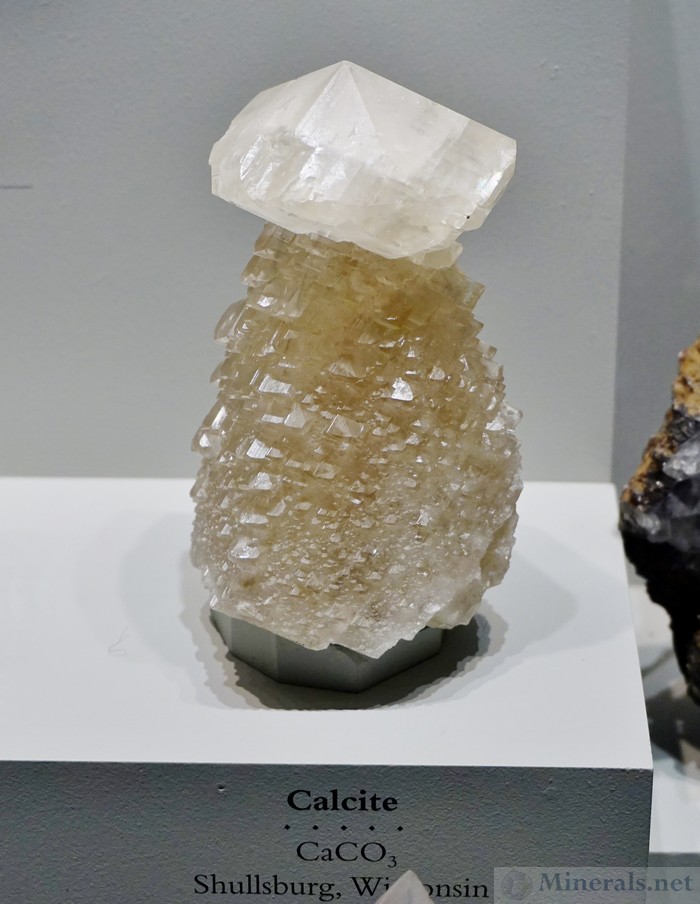
Large
Calcite Crystal on Calcite from Shullsberg, Wisconsin
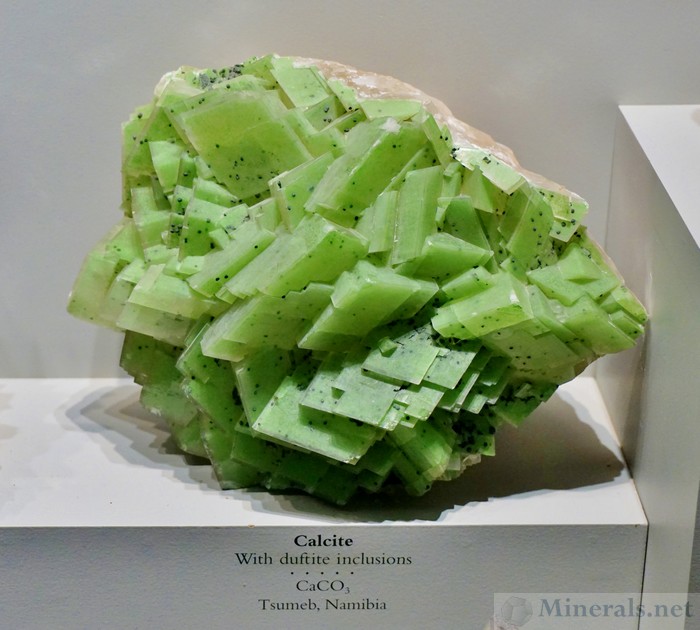 Calcite
Calcite with Duftite Inclusions, Resulting in Green Color, From Tsumeb, Namibia
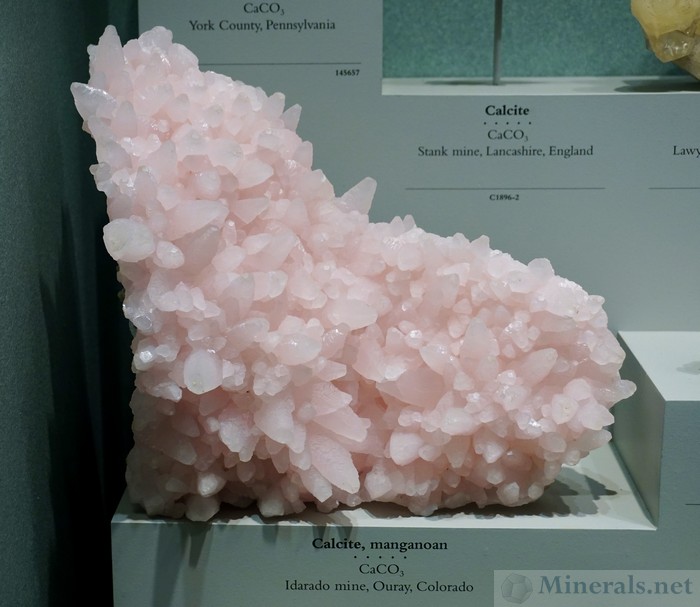
Manganoan
Calcite from the Idarado Mine, Ouray, Colorado, Namibia
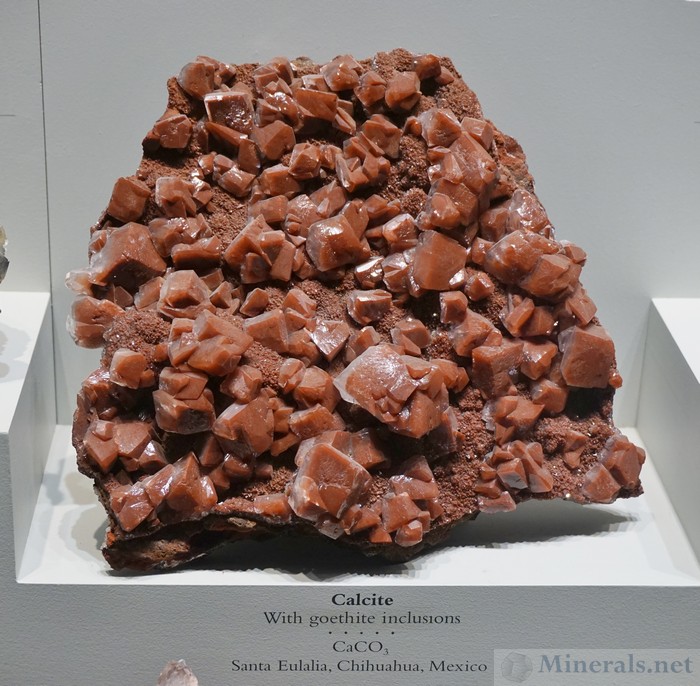
Brown
Calcite with
Goethite Inclusions from Santa Eulalia, Chihuahua, Mexico
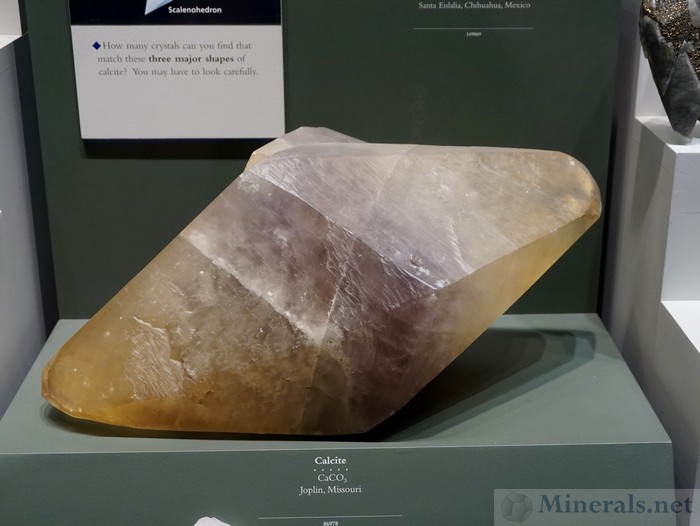
Large
Calcite Scalenohedron from Joplin, Missouri
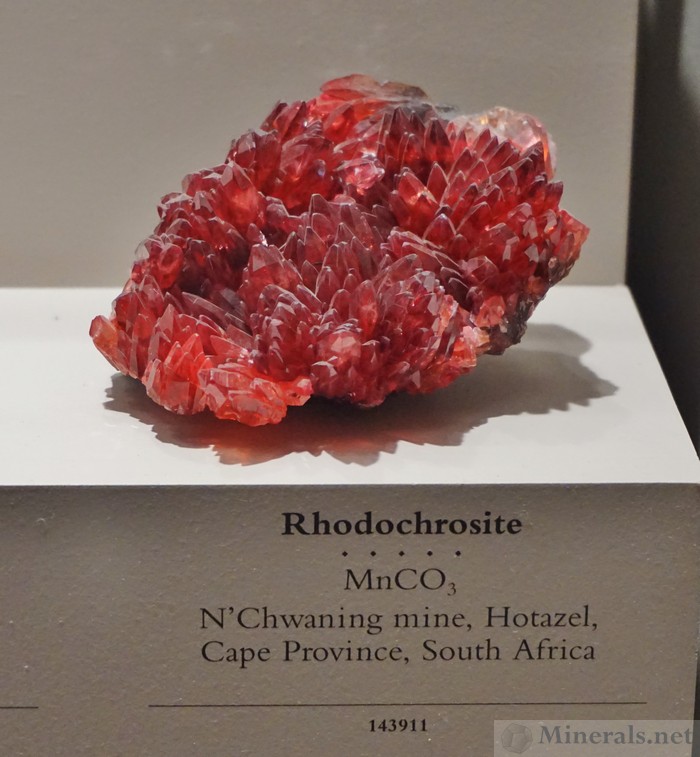
Deep Red
Rhodochrosite from N'Chwaning Mine, Hotazel, South Africa
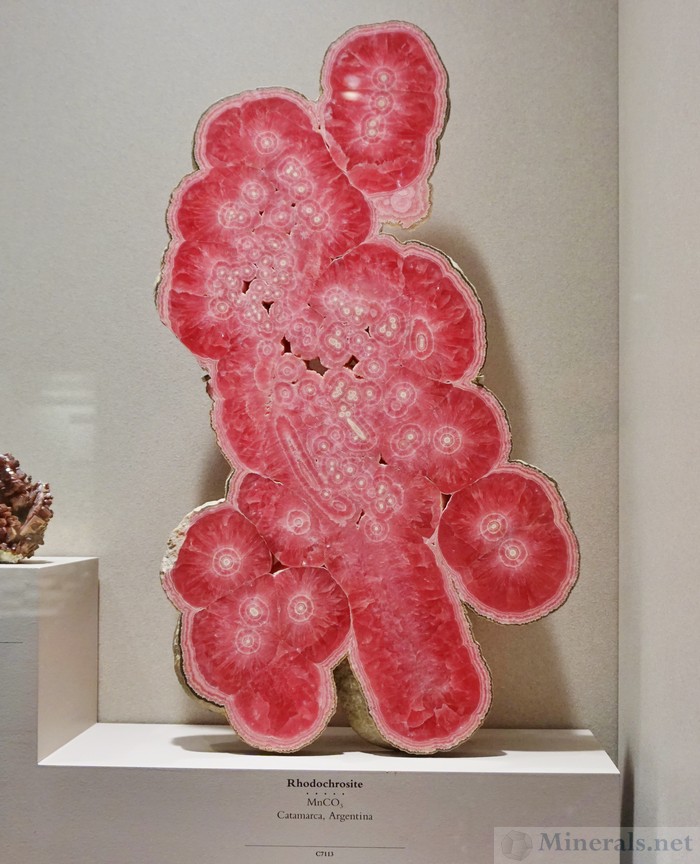
Large
Concentric Rhodochrosite Slab from Catamarca, Argentina
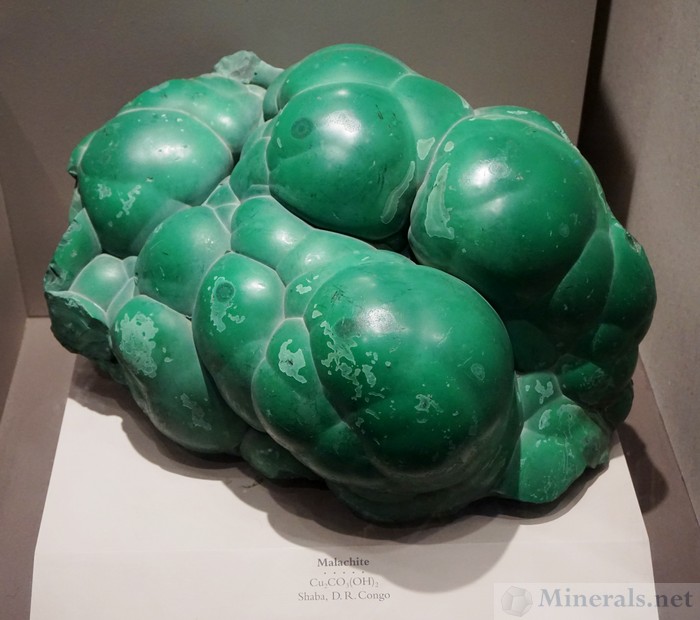
Huge
botryoidal Malachite Blob from Shaba, D.R. Congo
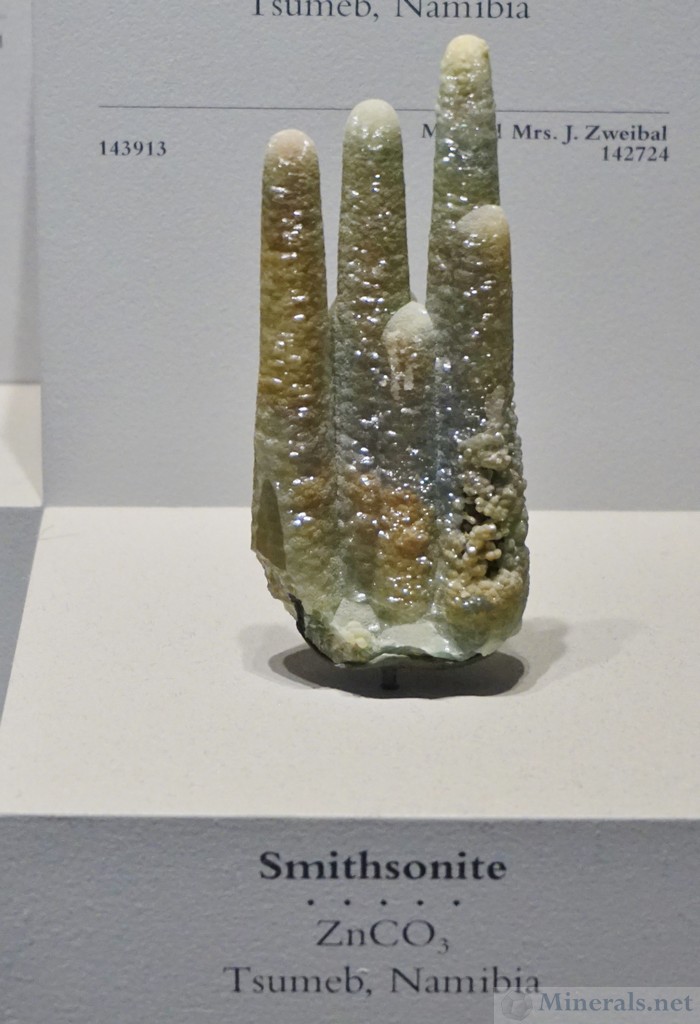 Smithsonite
Smithsonite Stalagmites from Tsumeb, Namibia
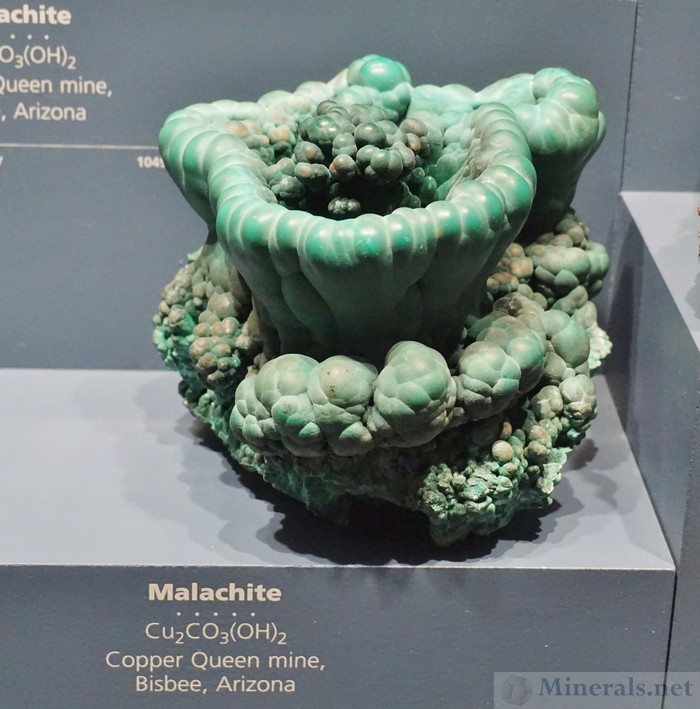
Nest-Shaped
Malachite Formation from the Copper Queen Mine, Bisbee, Arizona
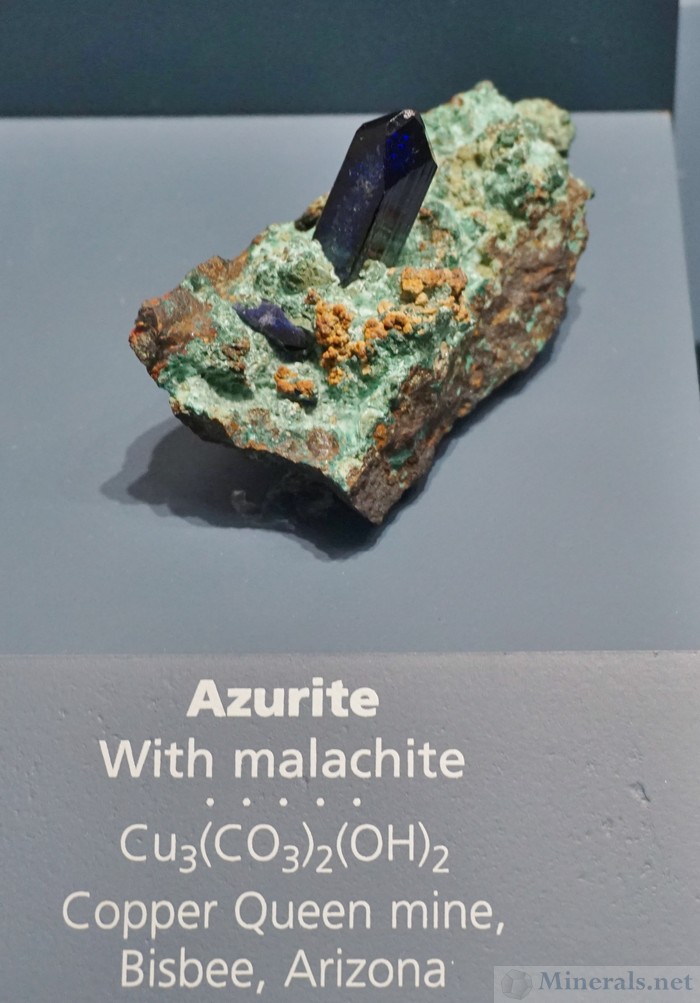
Prismatic
Azurite Crystal from the Copper Queen Mine, Bisbee, Arizona
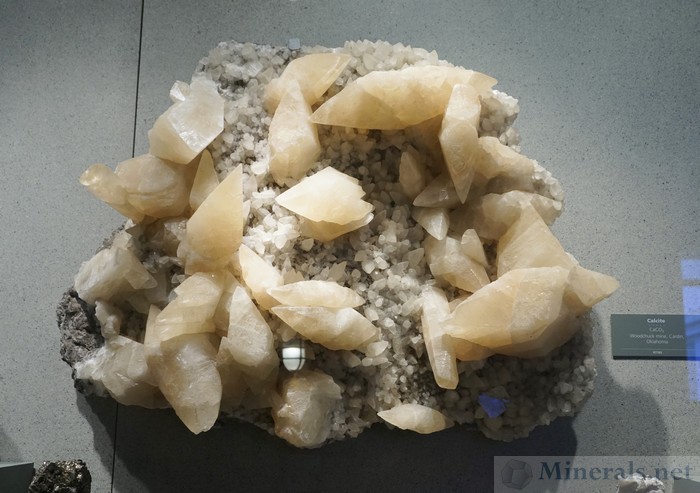
Giant
Calcite Crystal Cluster from the Woodchuck Mine, Cardin, Oklahoma

When we made our visit to the Smithsonian gem and mineral hall, we took hundreds of photos. After going through all of them, there are over 60 we felt worthwhile to post. Instead of making one long post with all of them, we divided then into several posts of related items. We had to think of a common grouping method, so we chose to separate the posts by mineral type classification. This post shows some of the oxides, sulfides, and halides in the Smithsonian collection.
Click the pictures below for a larger version pop-up.
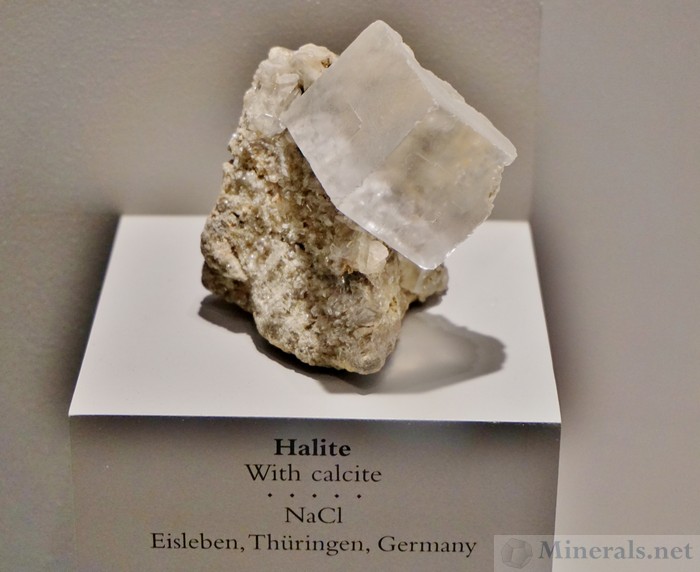
Cubic
Halite with
Calcite from Eisleben, Thuringen, Germany
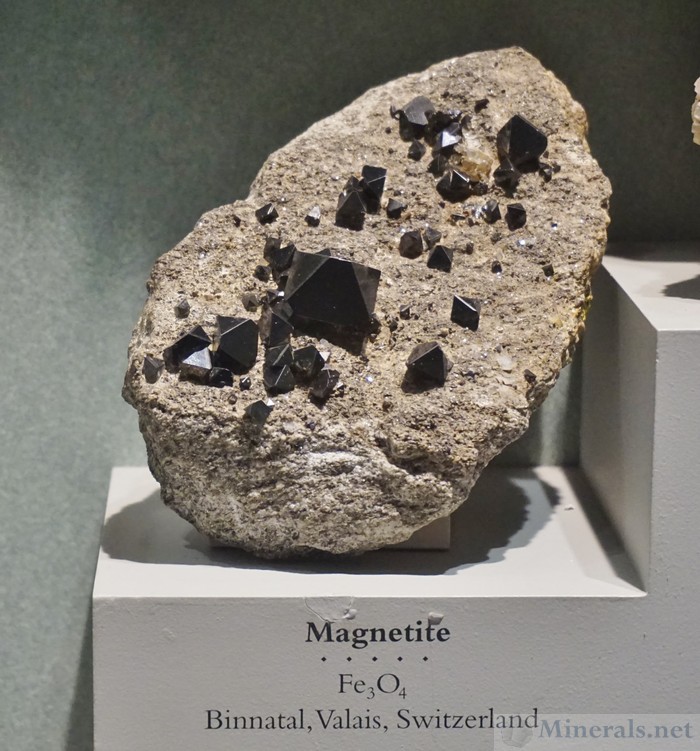 Magnetite Octahedron
Magnetite Octahedrons in Matrix from Binnantal, Valais, Switzerland
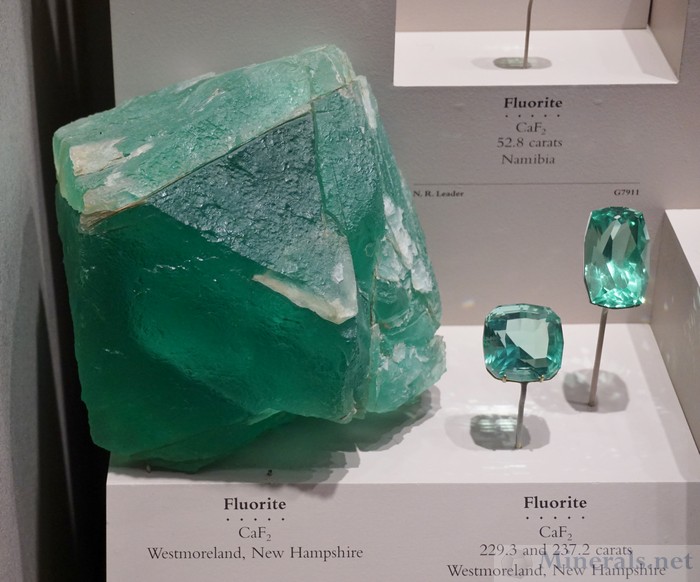
Green
Fluorite Crystal and Cut Gems from Westmoreland, New Hampshire
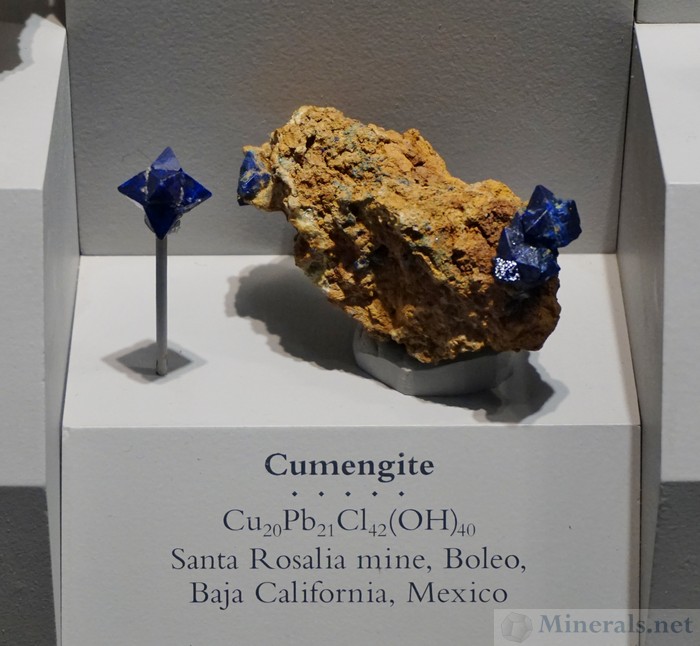
Cumengite Crystal from the Santa Rosalia Mine, Boleo, Mexico
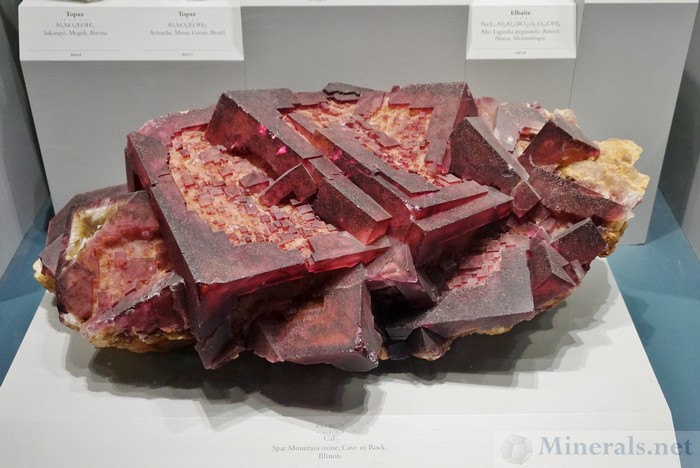
Etched Purple
Fluorite Cubes from the Spar Mountain Mine, Cave in Rock, Illinois
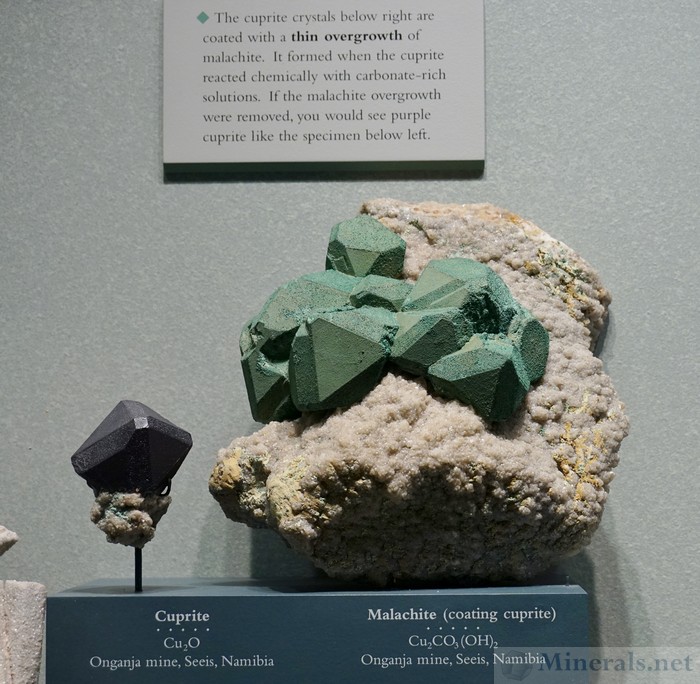 Cuprite
Cuprite with
Malachite Coating from the Onganja Mine, Seeis, Namibia
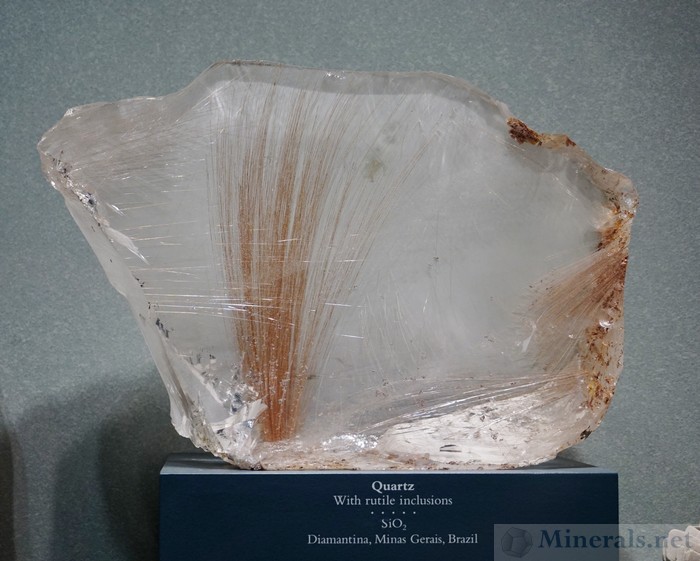 Quartz
Quartz with
Rutile Inclusions from Diamantina, Minas Gerais, Brazil
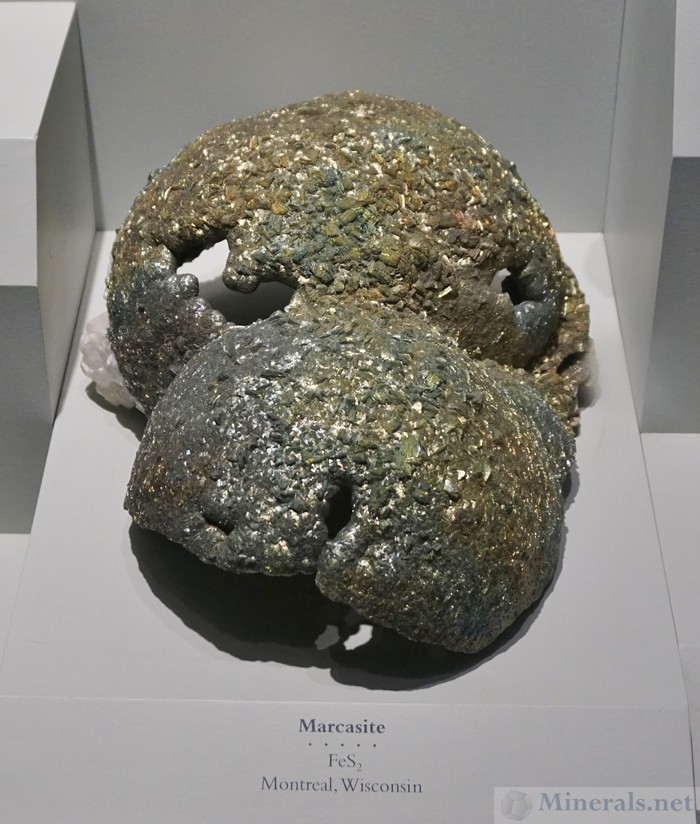
Skull-Shaped
Marcasite from Montreal, Wisconsin
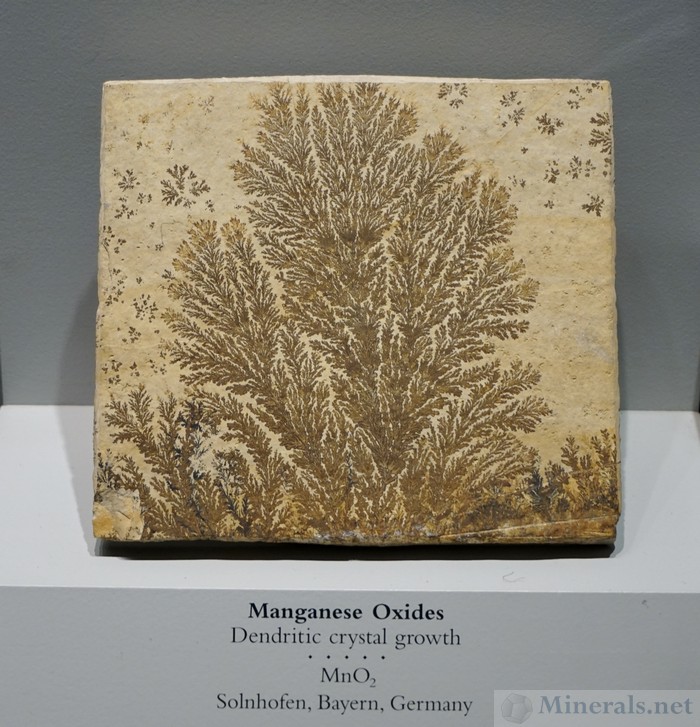
Manganese Oxide
Dendritic Crystal Growths in Matrix from Solnhofen, Bayern, Germany
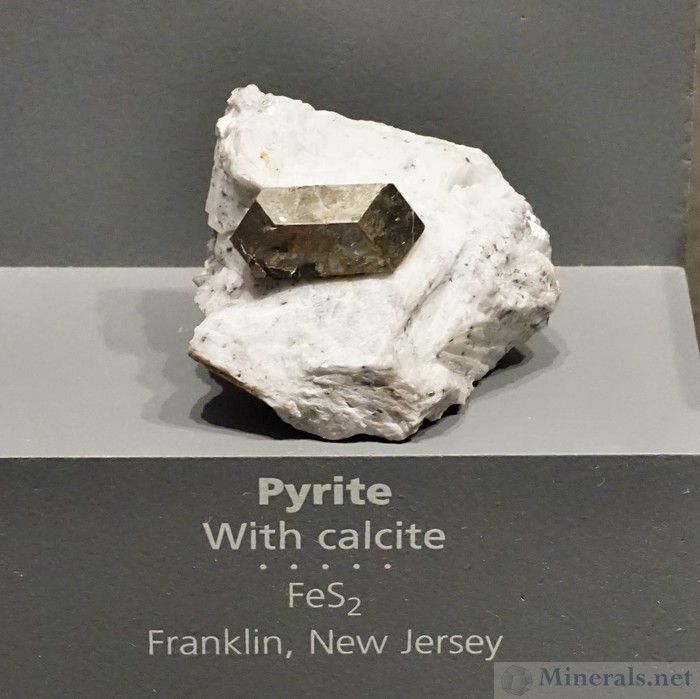
Complex
Pyrite Crystal in Calcite from Franklin, New Jersey
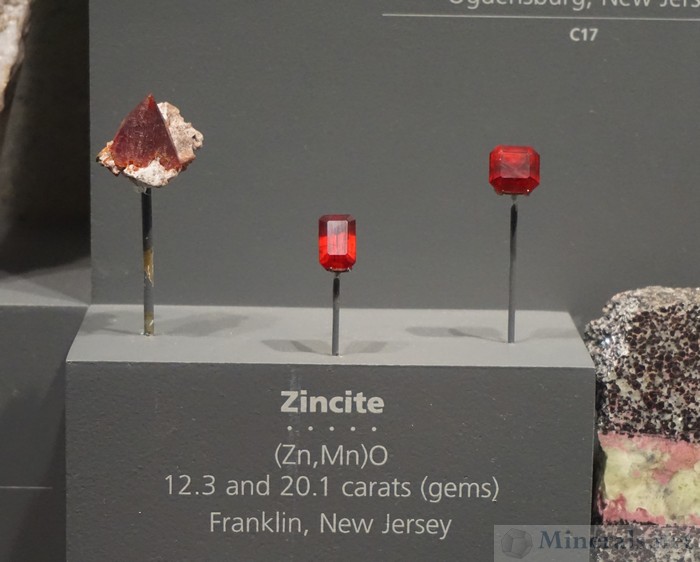 Zincite
Zincite Crystals and Cut Gems from Franklin, New Jersey
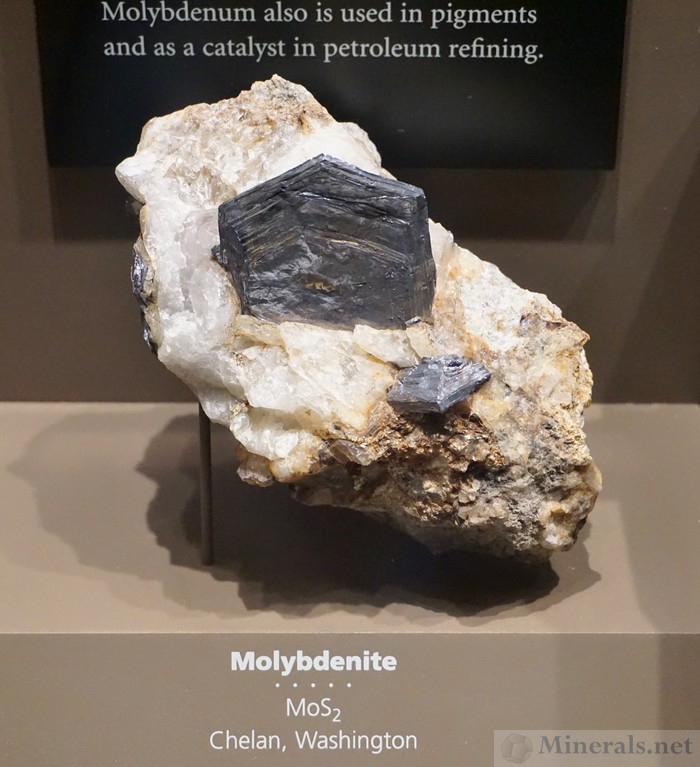 Molybdenite
Molybdenite Crystal in Matrix from Chelan, Washington
Click the pictures below for a larger version pop-up.
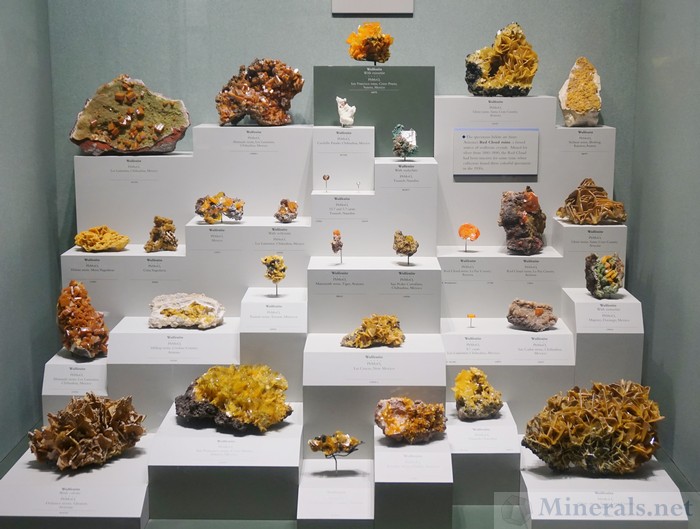 Wulfenite
Wulfenite Exhibit Case
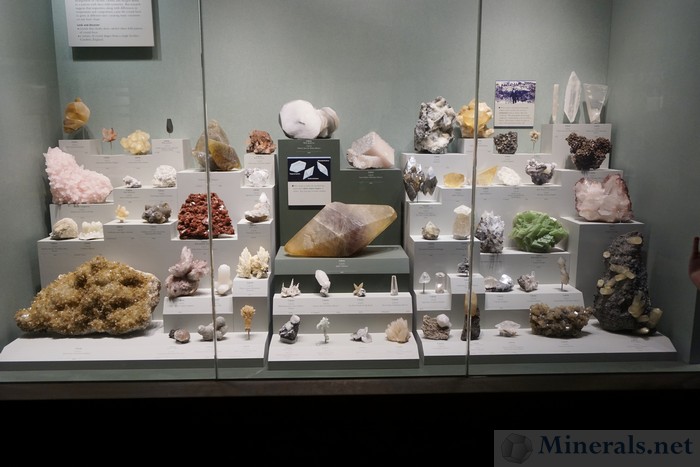 Calcite
Calcite Exhibit Case
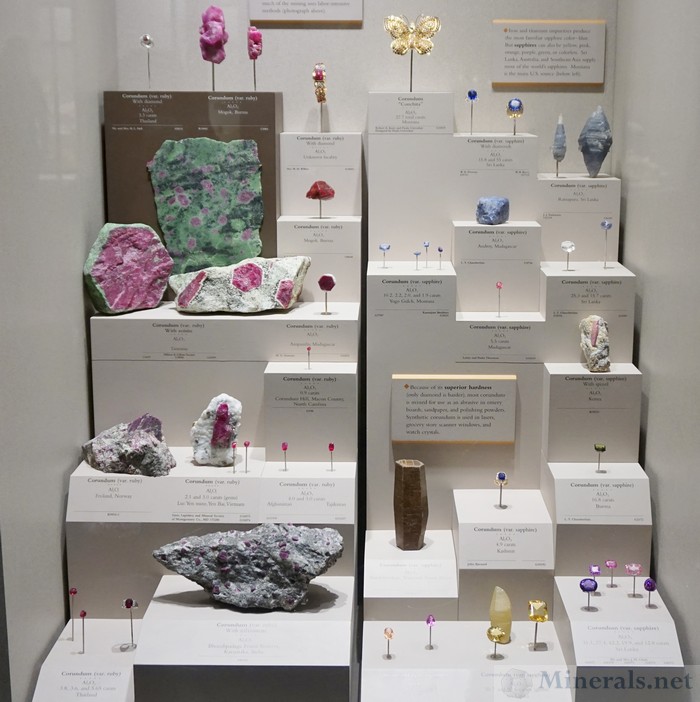 Corundum
Corundum Exhibit Case
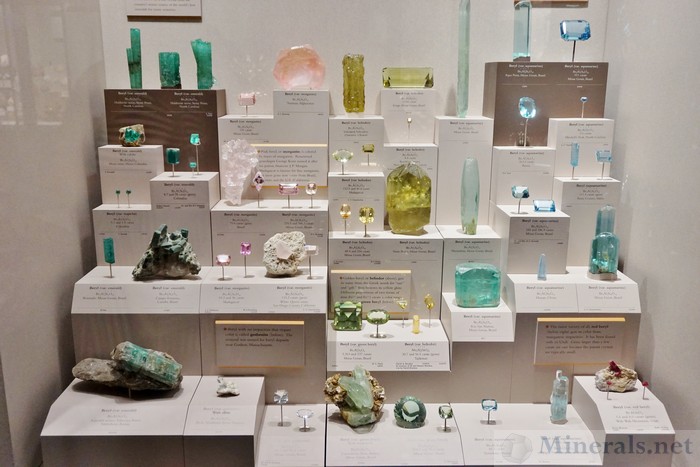 Beryl
Beryl Exhibit Case
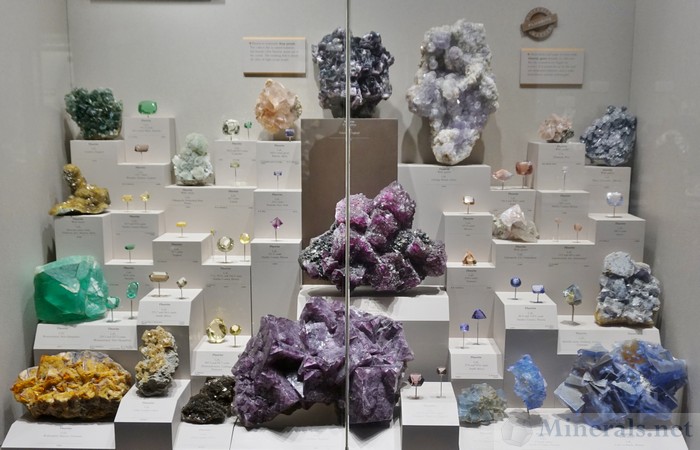 Fluorite
Fluorite Exhibit Case
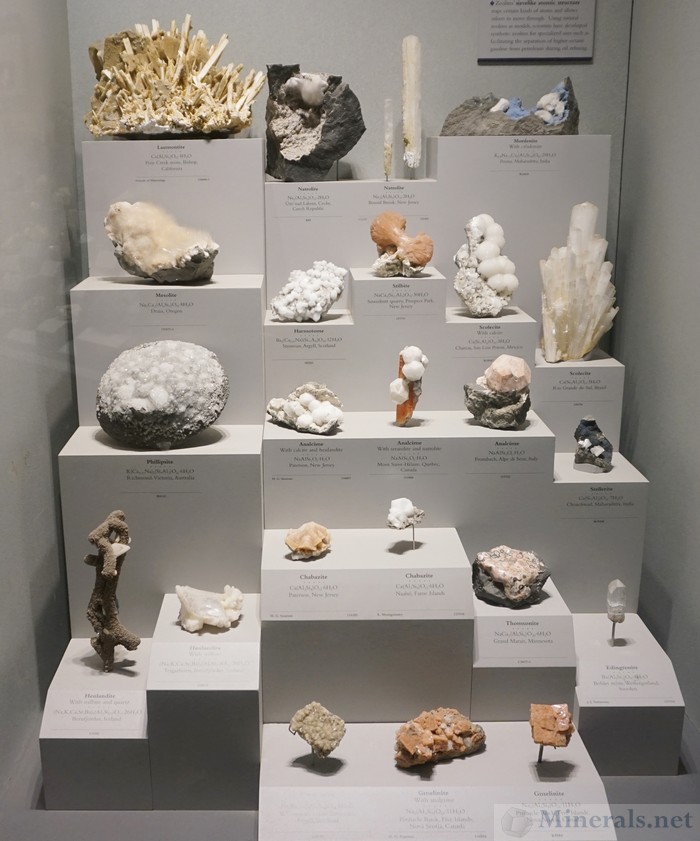 Zeolite
Zeolite Minerals Exhibit Case
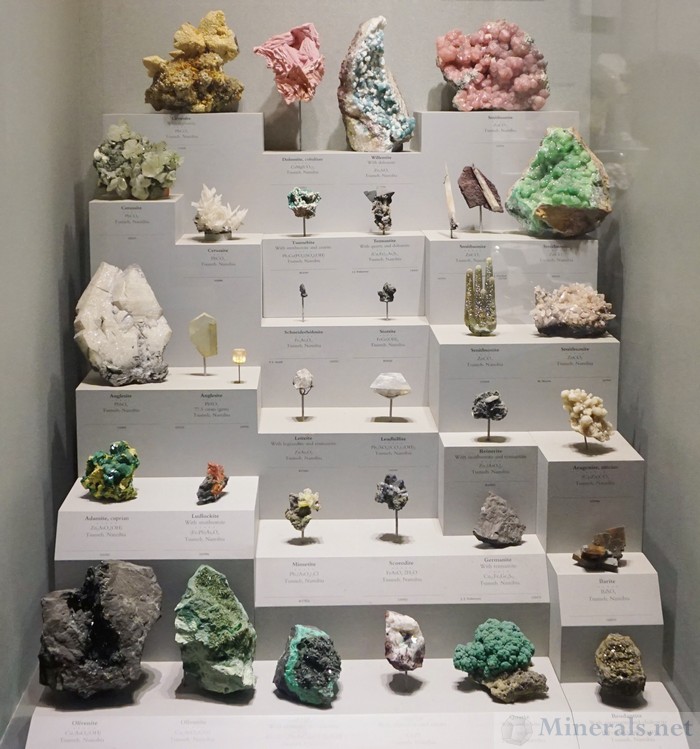
Misc Exhibit Case. I am not sure what the theme for this case is.
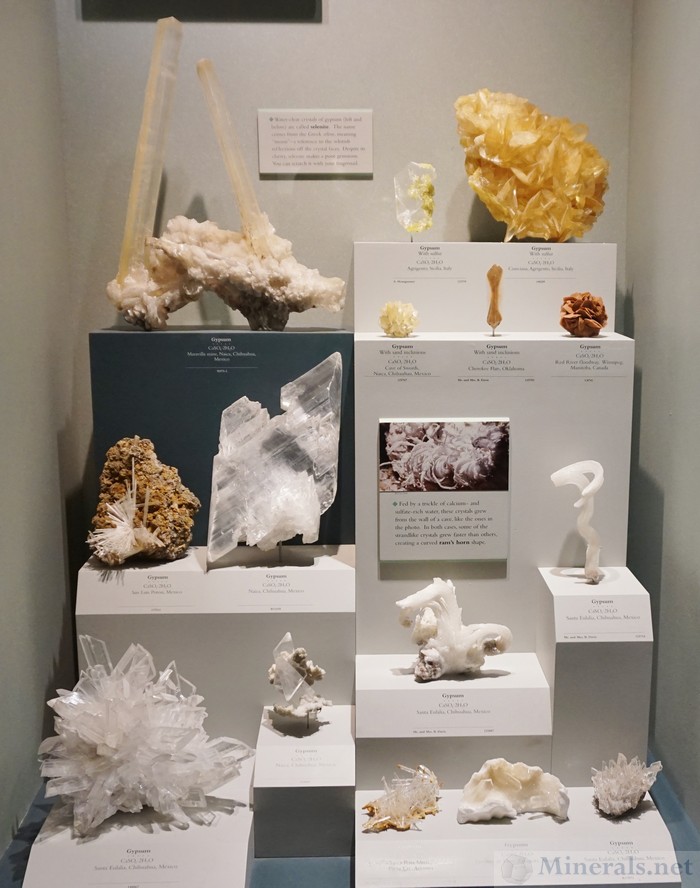 Gypsum
Gypsum Exhibit Case
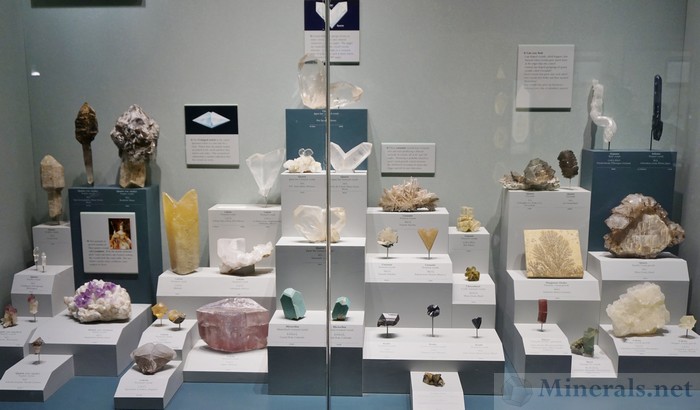
Crystal Twins and Other Interesting Crystal Habits
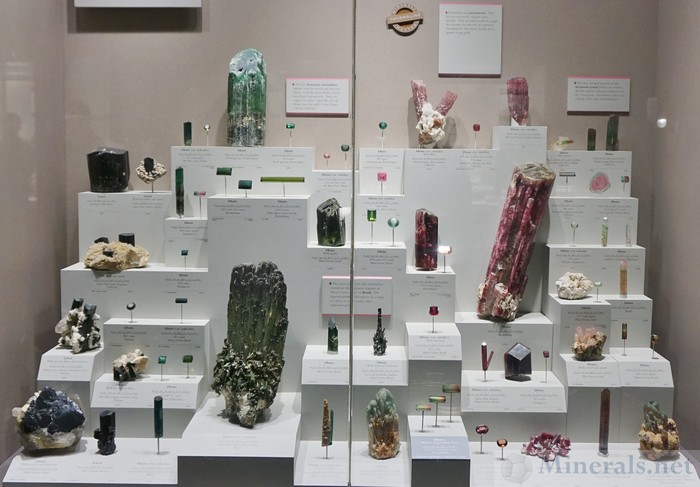 Tourmaline
Tourmaline Exhibit Case
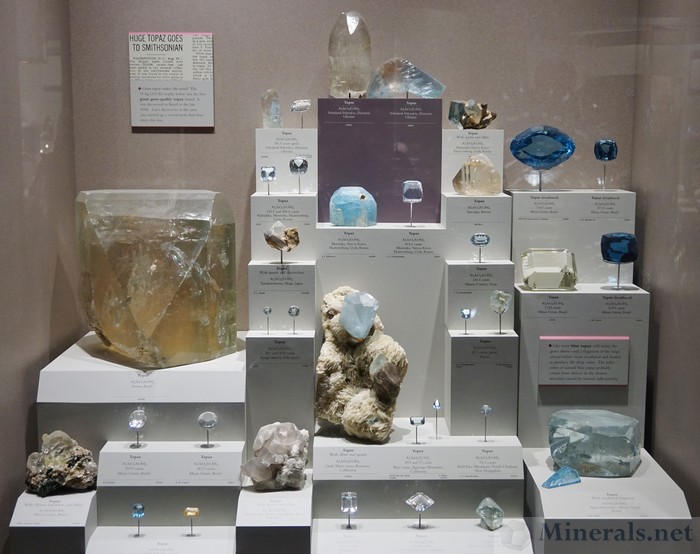 Topaz
Topaz Exhibit Case
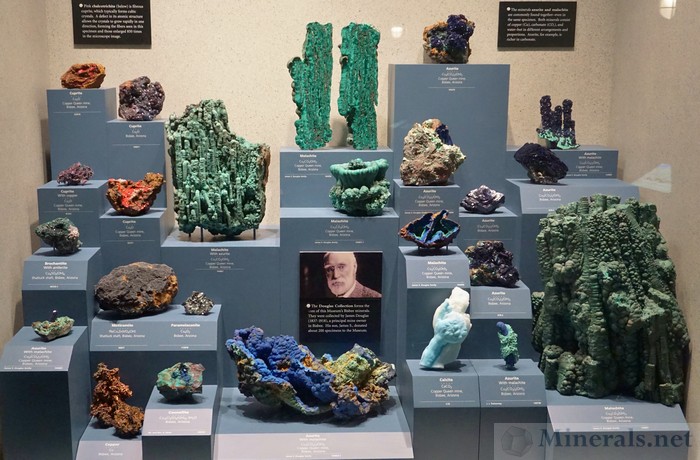
Minerals from Bisbee, Arizona
The Smithsonian gem and mineral collection contains an amazing array of Gold, Silver, and rare metal compounds. Many of the Gold and Silver specimens are among the finest for their localities, and there are also many examples from unusual localities. While not all the minerals show here are composed of precious metals, they are still rare and unusual examples of metallic compounds, especially sulfosalts.
Click the pictures below for a larger version pop-up.
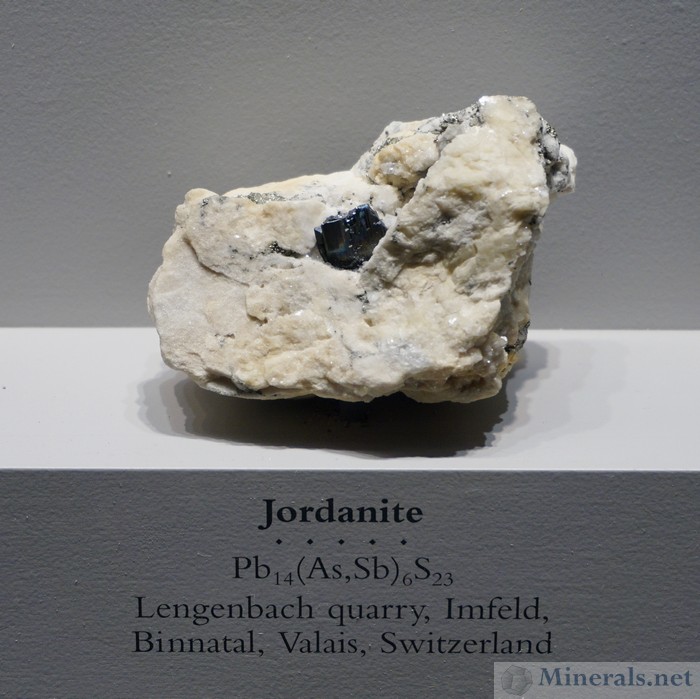
Jordanite, Lengenbach Quarry, Binntal, Switzerland
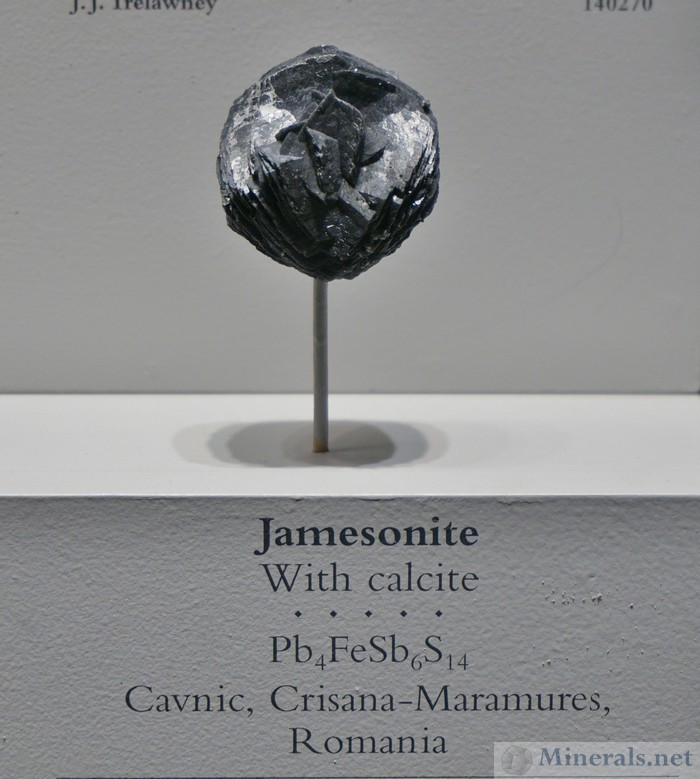 Jamesonite
Jamesonite with
Calcite, Cavnic, Maramures, Romania
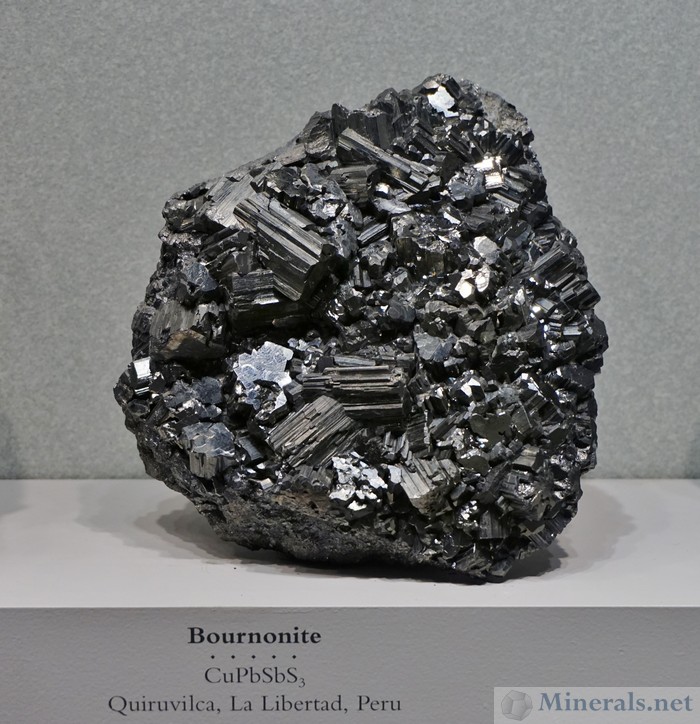 Bournonite
Bournonite, Quiruvilca, Peru
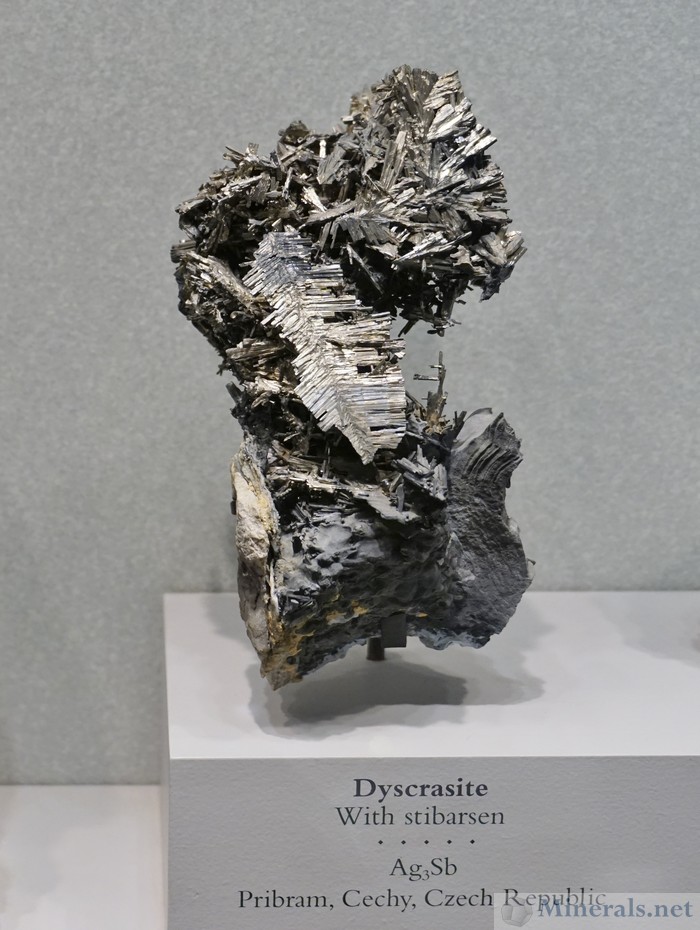
Dyscrasite with
Stibarsen from Pribram, Czech Republic
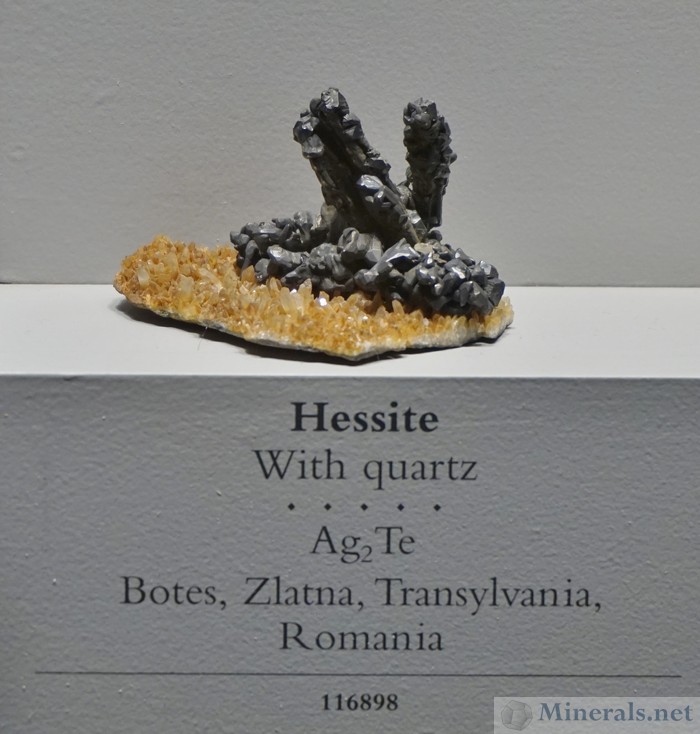
Hessite with Quartz, Botes Transylvania, Romania
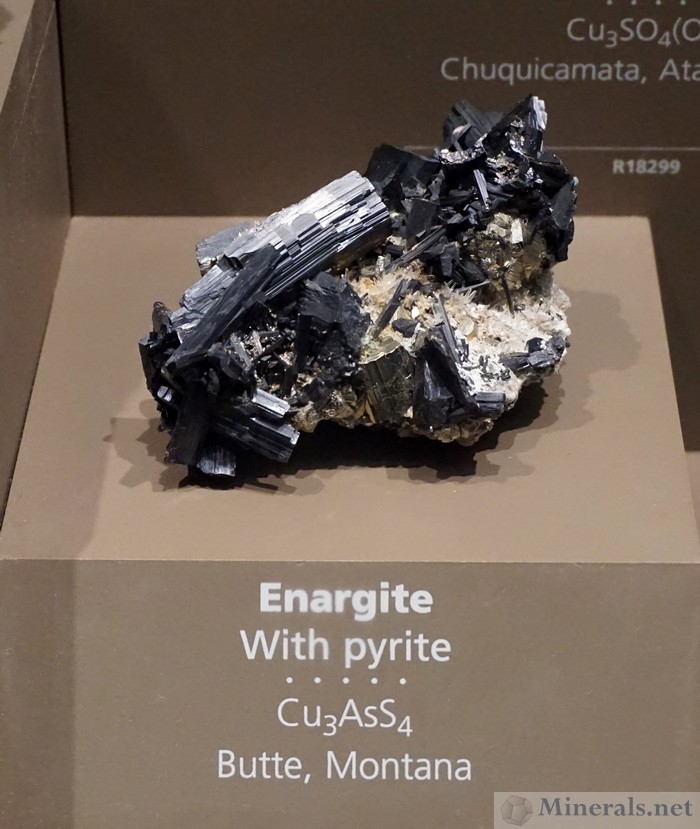 Enargite
Enargite with Pyrite, Butte, Montana
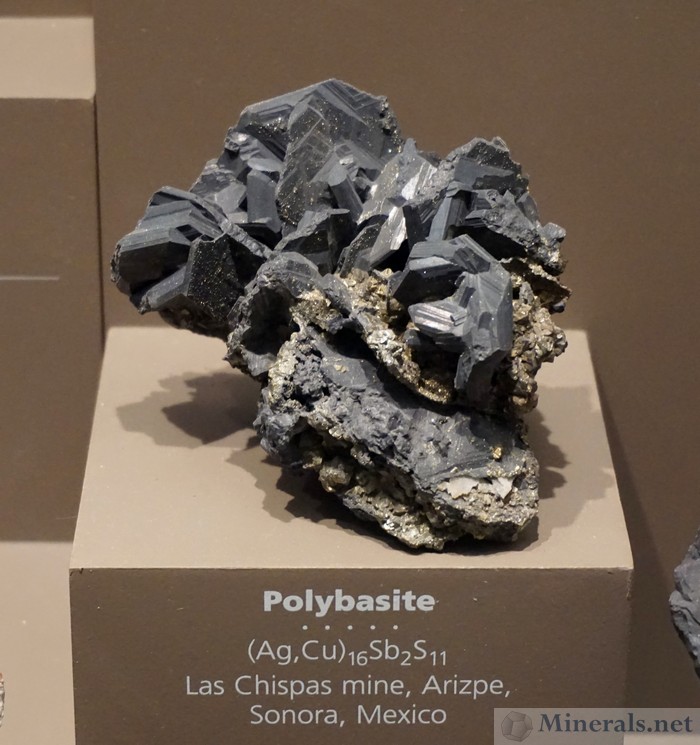 Polybasite
Polybasite from the Las Chispas Mine, Arizpe, Sonoroa, Mexico
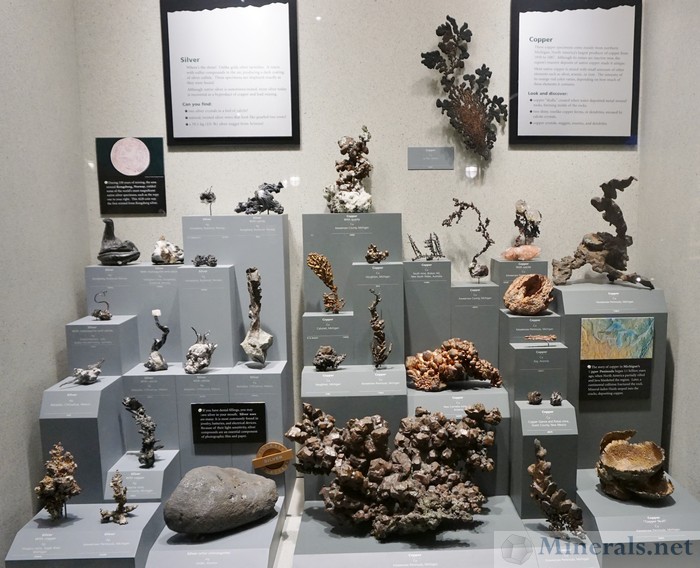
Exhibit Case of
Silver and
Copper
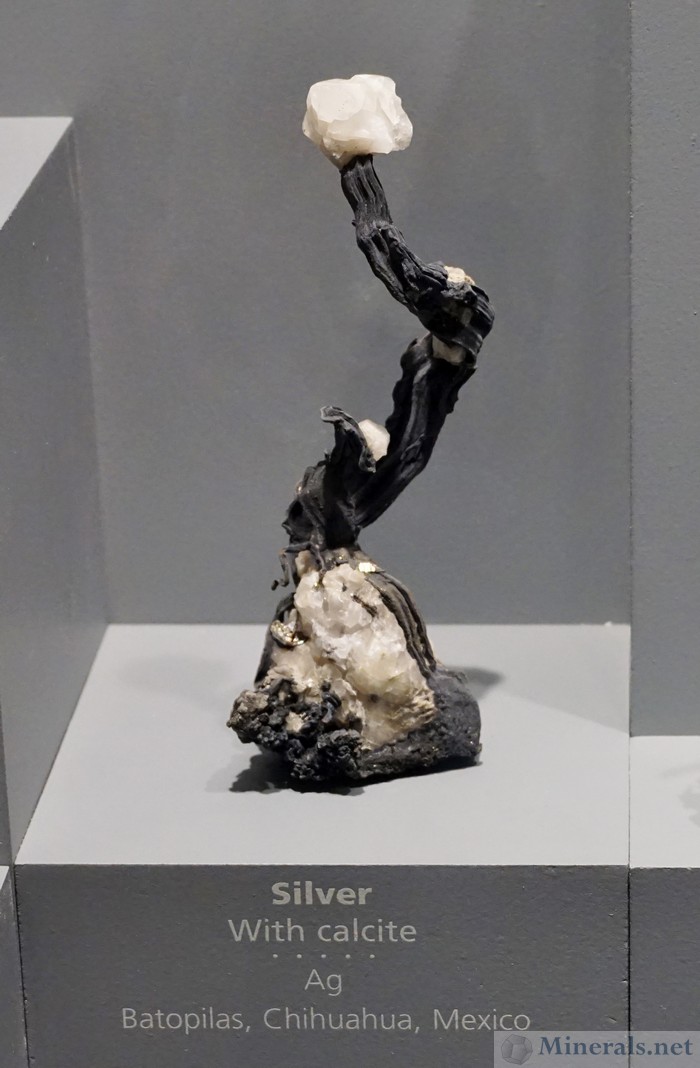
Thick
Silver Wire with
Calcite, Batopilas, Chihuahua, Mexico
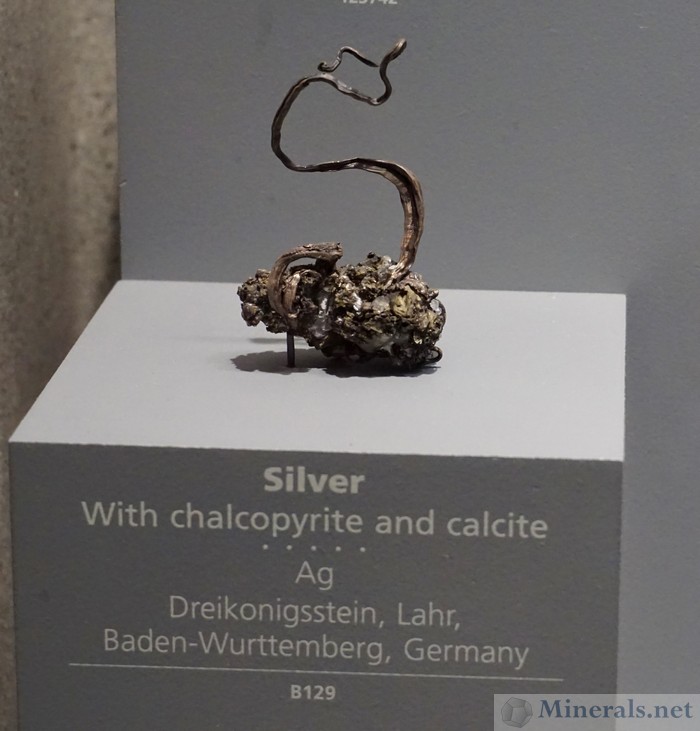 Silver
Silver "S" Wire from Dreikonigsstein, Lahr, Baden-Wurttenberg, Germany
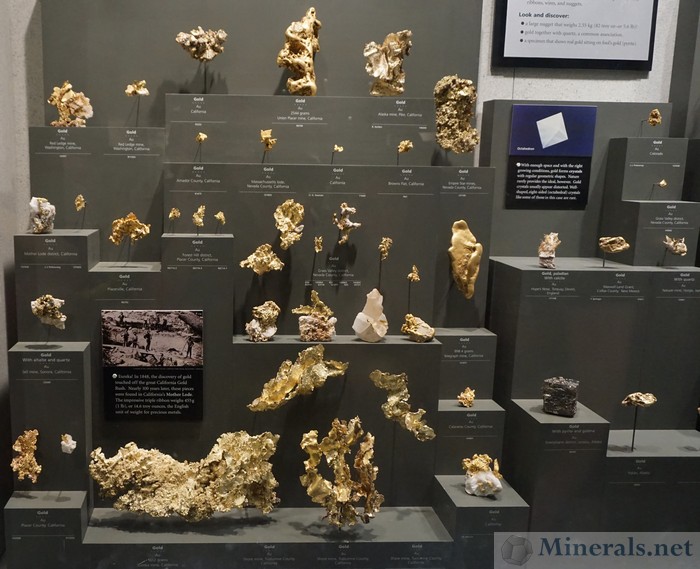
Exhibit Case of
Gold
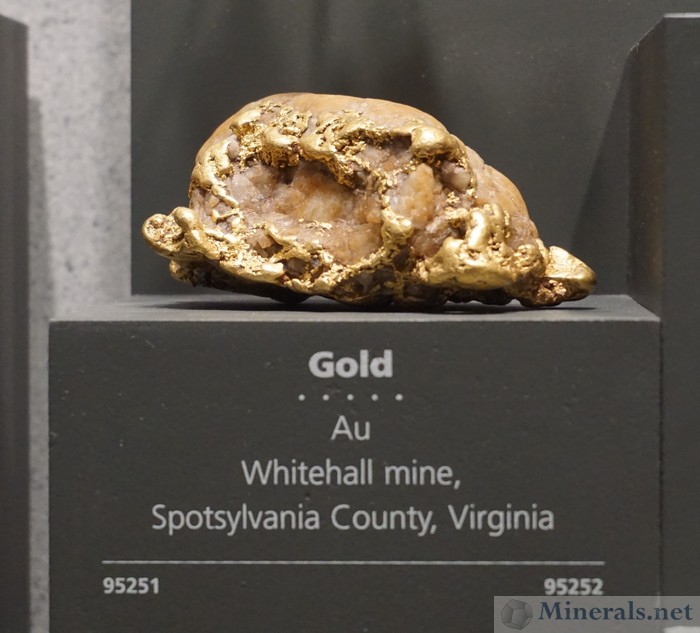 Gold
Gold Nugget, Whitehall Mine, Spotsylvania Co., Virginia
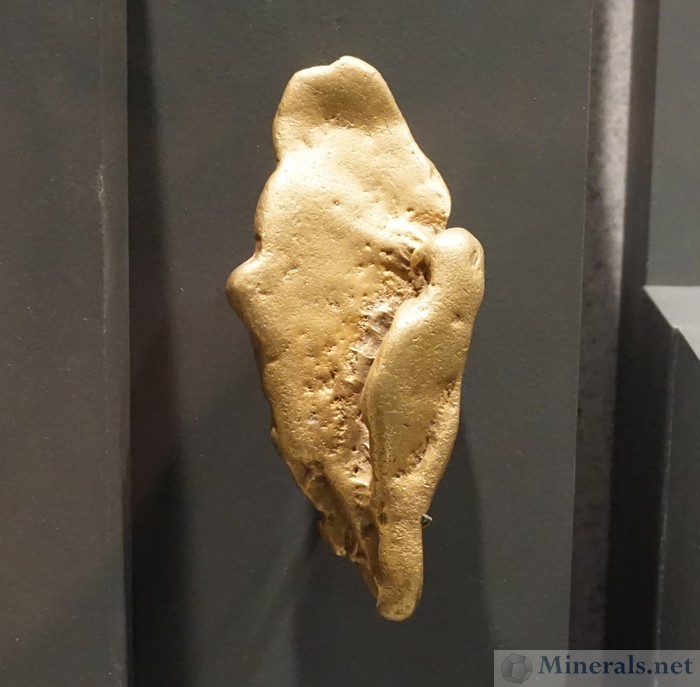
Large
Gold Nugget (898.4 grams), Telegraph Mine, California
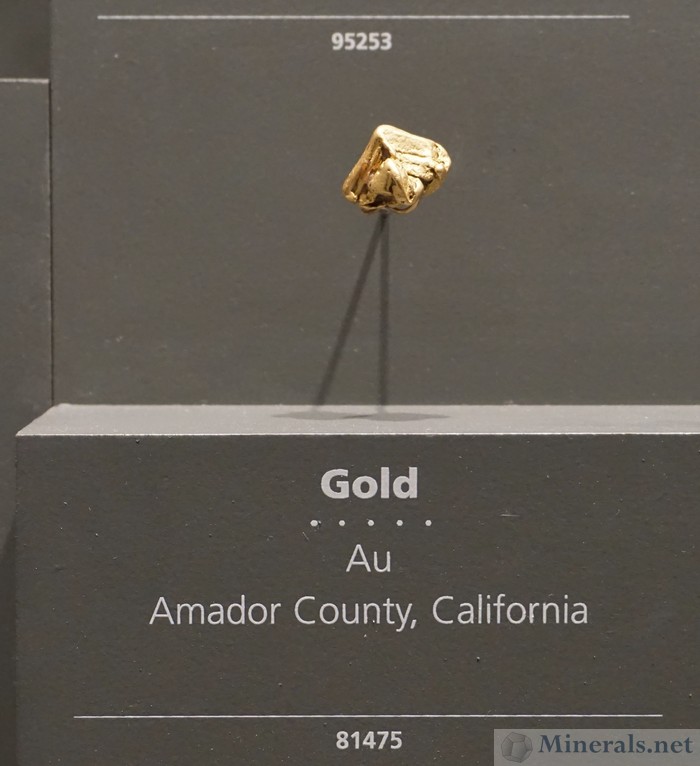
Hoppered
Gold Crystal, Amador Co., California